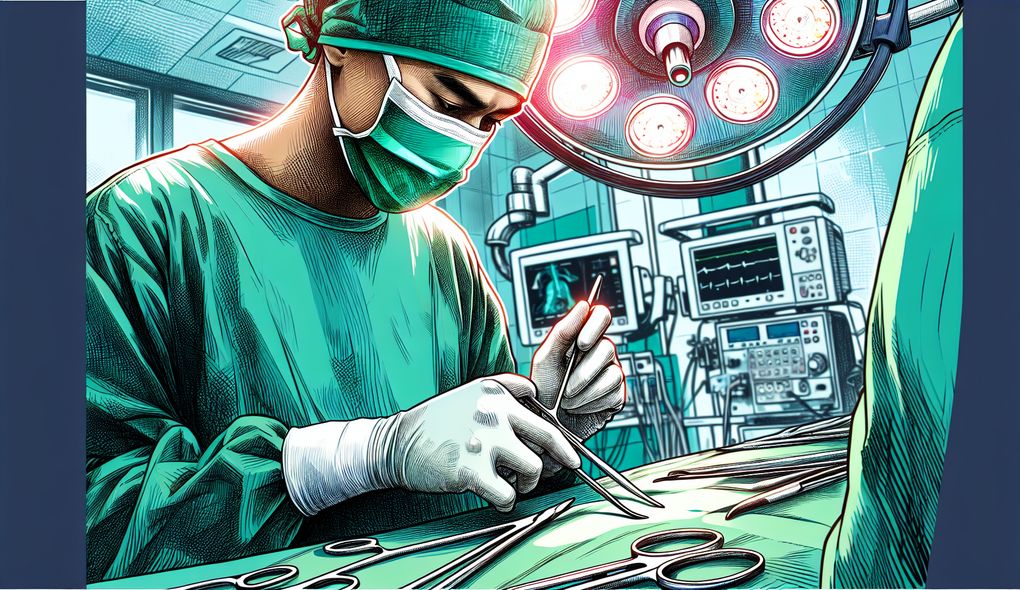What are the key surgical policies and procedures that a Surgical Technician must adhere to?
INTERMEDIATE LEVEL

Sample answer to the question:
As a Surgical Technician, the key policies and procedures that I must adhere to include following aseptic techniques, maintaining a sterile field, and ensuring the availability and functionality of necessary equipment. I also need to assist in positioning and preparing the patient for surgery, pass instruments to the surgeons during procedures, and collect and dispose of specimens for analysis. Additionally, I should anticipate the surgeon's needs and provide instruments and supplies efficiently. Adhering to surgical policies and procedures, including safety and infection control standards, is essential in my role.
Here is a more solid answer:
As a Surgical Technician, I must adhere to several key surgical policies and procedures to ensure the safety and success of each surgery. Firstly, I am responsible for following aseptic techniques to maintain a sterile environment in the operating room. This includes properly sterilizing instruments and equipment and practicing good hand hygiene. Additionally, I must closely follow the surgeon's instructions and be proficient in handling surgical instruments, ensuring they are passed to the surgeon accurately and efficiently. I am also responsible for assisting with the positioning and preparation of the patient for surgery, ensuring their comfort and safety. Furthermore, I must collect and properly dispose of specimens for laboratory analysis while following strict protocols to prevent contamination. Adhering to all surgical policies and procedures, including safety and infection control standards, is of utmost importance in my role as a Surgical Technician.
Why is this a more solid answer?
The solid answer provides more specific information about the key surgical policies and procedures that a Surgical Technician must adhere to. It mentions aseptic techniques, maintaining a sterile environment, following surgeon's instructions, handling surgical instruments, positioning and preparing the patient, and collecting and disposing of specimens. It also emphasizes the importance of adhering to all surgical policies and procedures, including safety and infection control standards. However, it could still benefit from providing more examples of past experiences in following these policies and procedures.
An example of a exceptional answer:
As a Surgical Technician, strict adherence to key surgical policies and procedures is vital in providing optimal patient care and ensuring successful surgeries. Maintaining a sterile environment is of utmost importance, and I am well-versed in aseptic techniques and following infection control protocols. For example, I have experience in sterilizing instruments and equipment using various methods, such as autoclaving and chemical sterilization. I am meticulous in my approach and pay close attention to detail to prevent any breaches in the sterile field. In addition, I have developed strong communication and interpersonal skills through collaborating closely with surgeons, anesthesiologists, and other surgical personnel. This enables me to anticipate the surgeon's needs and provide them with the necessary instruments and supplies efficiently. Lastly, my ability to handle high-pressure situations and maintain focus allows me to consistently deliver quality work. Overall, my commitment to adhering to surgical policies and procedures ensures a safe and effective surgical environment.
Why is this an exceptional answer?
The exceptional answer provides comprehensive information about the key surgical policies and procedures that a Surgical Technician must adhere to. It not only mentions aseptic techniques and maintaining a sterile environment but also provides specific examples of past experiences, such as sterilizing instruments using autoclaving and chemical sterilization. The answer also highlights the candidate's strong communication and interpersonal skills, ability to anticipate the surgeon's needs, and proficiency in handling high-pressure situations. These qualities contribute to the candidate's overall commitment to adhering to surgical policies and procedures.
How to prepare for this question:
- Familiarize yourself with aseptic techniques and infection control protocols commonly followed in the operating room.
- Review and practice handling different surgical instruments to ensure proficiency.
- Develop strong communication and interpersonal skills by seeking opportunities to collaborate with healthcare professionals in a surgical setting.
- Practice following complex instructions accurately and efficiently.
- Learn about different surgical procedures and their instrumentation to enhance your understanding of the surgeon's needs.
- Improve your attention to detail by regularly practicing tasks that require meticulousness.
- Prepare for working under pressure by simulating high-stress scenarios and developing strategies to stay calm and focused.
What are interviewers evaluating with this question?
- Knowledge of surgical policies and procedures
- Ability to follow complex instructions
- Attention to detail
- Ability to work under pressure
- Ability to maintain a sterile environment
- Interpersonal skills
- Communication skills

